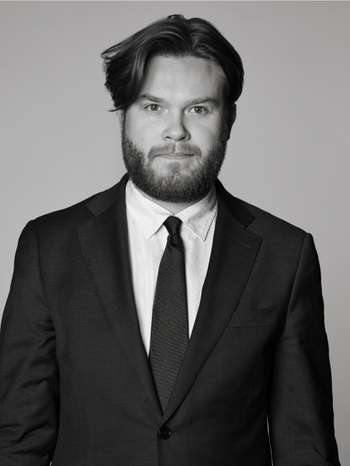Ivan Aguéli
"Landskap, Gotlandskusten"
Executed 1892. Paper mounted on panel 29 x 43 cm.
Alkuperä - Provenienssi
The estate of the artist Karl Nordström - auction, December 1937.
Svensk-Franska Konstgalleriet, Stockholm.
Med. dr Emanuel Bergman, Eskilstuna.
Thence by descent within the family.
Stockholms Auktionsverk, 13 December, 2017, cat.no. 2017.
Private Collection.
Näyttelyt
Nationalmuseum, Stockholm, "Ivan Aguéli - Minnesutställning", 1939, cat. no. 44 (from the coll. med. dr Emanuel Bergman). Liljevalchs konsthall, Stockholm, "Svensk konstkavalkad - Jubileumsutställning", 1956, cat. no .24 (then belonging to Mrs Hanna Bergman).
Riksförbundet för bildande konst, exhibition 99, "Svensk natur", (Then belonging to Halvar Bergman, Eskilstuna).
Kulturhuset, Borås, "Ivan Aguéli", 15 June - 18 August 2002.
Kirjallisuus
Axel Gauffin: "Ivan Aguéli - människan - mystikern - målaren", SAK 1940-41, vol II, no 54 in the list of works.
Konst i svenska hem - målningar och skulpturer från 1800 till våra dagar, vol II, Bokkonst, Göteborg 1942, mentioned and illustrated p. 349, collection no 553.
Muut tiedot
It was during his first stay on the Swedish island of Gotland in 1889 that Ivan Aguéli decided to become an artist. He discovered the unique and distinct landscape unlike anything else in Sweden. Aguéli returned to his beloved Gotland in the late summer and autumn of 1892, where he created several delicate landscape paintings, including the current painting "Landscape, coast of Gotland". In the foreground, the terrain is hilly with low trees and bushes in yellow, rust-brown, and green tones. In the middle ground, the water is depicted in bluish-violet tones. The sky on the horizon shifts in shades of blue to light pink.
Aguéli was born in the small town of Sala but spent most of his life abroad - Europe and North Africa attracted the restless traveler. His work includes landscapes from France, India, Egypt, and Spain. Aguéli was a globetrotter, a seeker, and a boundary-crosser - in painting as well as in religion and philosophy. He alternated between living in Paris and Egypt and eventually settled in Spain, where he tragically died in a traffic accident at the age of 48 in 1917.
As an artist, he was largely unnoticed during his lifetime. He only exhibited once, at the Artists' Association exhibition in Stockholm in 1912. The versatile Aguéli only painted during two periods of his life, first during his youth from 1889 to 1895, and then between 1911 and the year 1917. After his death, Prince Eugen helped transport Aguéli's belongings back to Sweden with the help of his friends Richard Bergh, Carl Wilhelmson, and Karl Nordström. Due to the war, it wasn't until 1919 that all the boxes of his estate could be unpacked. The following year, a retrospective was organized at the Artists' Association premises on Strandvägen. It was a great success with both critics and the public, and all the works were sold.
Aguéli often returned to Gotland seeking the emotional impact of the unique landscape. His landscapes are poetic and meditative representations of his interpretations of the magnificent motifs of earth and sky. His painterly landscapes are natural and pure, painted from the artist's inner self.



























































